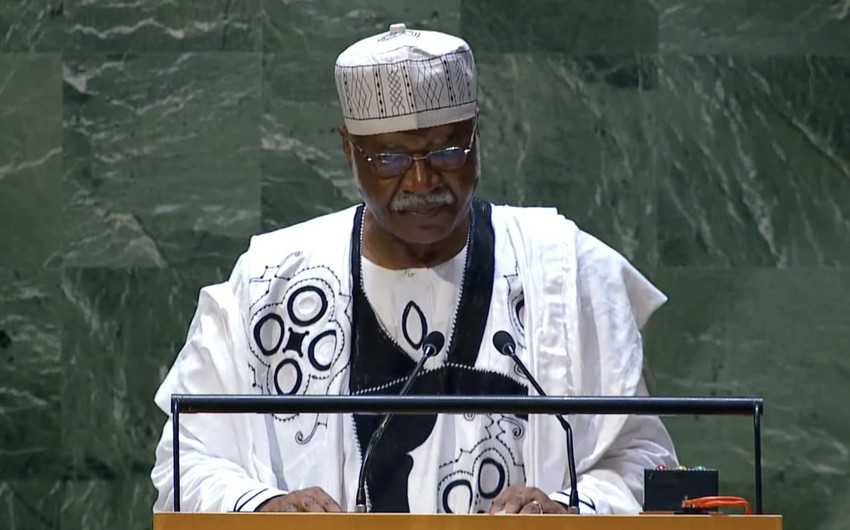BAKU: The United Nations Environment Programme’s 2024 emissions gap report has warned that emissions are at an all-time high, projecting a catastrophic temperature rise of 3.1°C by the end of the century.
This trajectory promises a surge in climate disasters, with consequences falling hardest on the most vulnerable communities, underscoring our urgent, collective responsibility to act quickly and decisively.
This was stated by President of General Assembly Philemon Yang at the High-Level Segment Opening Ceremony at COP29 in Baku on Tuesday, says a press release.
“We must undertake several measures to avert further climate disaster and ensure our resilience. Chief among them is to deliver on the necessary finance commitments. Let me be clear, without financing, climate action will simply not happen.”
So, a first key outcome of COP29 must be the delivery of a New Collective Quantified Goal for climate finance, to address the unmet promise of $100 billion per year to support developing countries in their climate response.
And let me be clear again, climate finance is not a subcategory of financing for development. Climate finance should be additional to Official Development Assistance.
This means that developing countries should have access to financing – not only to eradicate poverty and foster sustainable, inclusive, and resilient economic growth, but not at the expense of being able to respond to the adverse impacts of climate change and build climate resilience.
To put it simply, no developing country should have to choose between sustainable development and addressing climate change.
“We need to achieve both. And what is more, the New Collective Quantified Goal must include a significant scale-up of grant-based public finance for mitigation and adaptation.
I am pleased to note that the Loss and Damage Fund was operationalized last year, and I hope to see ambitious pledges towards it as we go forward.”
We cannot continue sleepwalking towards the climate abyss and then say we did not know how to tackle it.
A second key outcome of COP29 must be to continue to pursue efforts in line with the 1.5 degree Celsius pathways, while reaffirming our goal to limit global temperatures, as we agreed to in Paris, and in September, with the Pact for the Future.
A global commitment to affordable, reliable, sustainable and modern energy for all and a just and equitable transition, driven by adequate, predictable and additional climate finance, is essential to reducing emissions thereby.
And the third key outcome is to fix the adaptation dilemma.
Every year that we delay taking decisive action the impact of climate change worsens, necessitating more resources and more delivery.
As it stands, current global financial flows for adaptation—both private and public—remain insufficient, as highlighted by the Sixth Assessment Report of the Intergovernmental Panel on Climate Change.
As a result, our capacity to implement effective adaptation strategies and build resilience, particularly in developing nations, remains severely limited.
We must do much better, striving to build momentum from the Pact for the Future which Member States adopted last September.
The Pact was crafted to reinvigorate our multilateral system and make much needed progress in achieving the Sustainable Development Goals – which necessarily entails urgent, ambitious climate action.
COP29 is an opportunity to do just that, delivering meaningful outcomes that demonstrate solidarity in the face of immense adversity.
As we look towards COP30 to be hosted by Brazil, we must recognize the need to significantly enhance international cooperation and the international enabling environment to stimulate ambition in the next round of nationally determined contributions.

